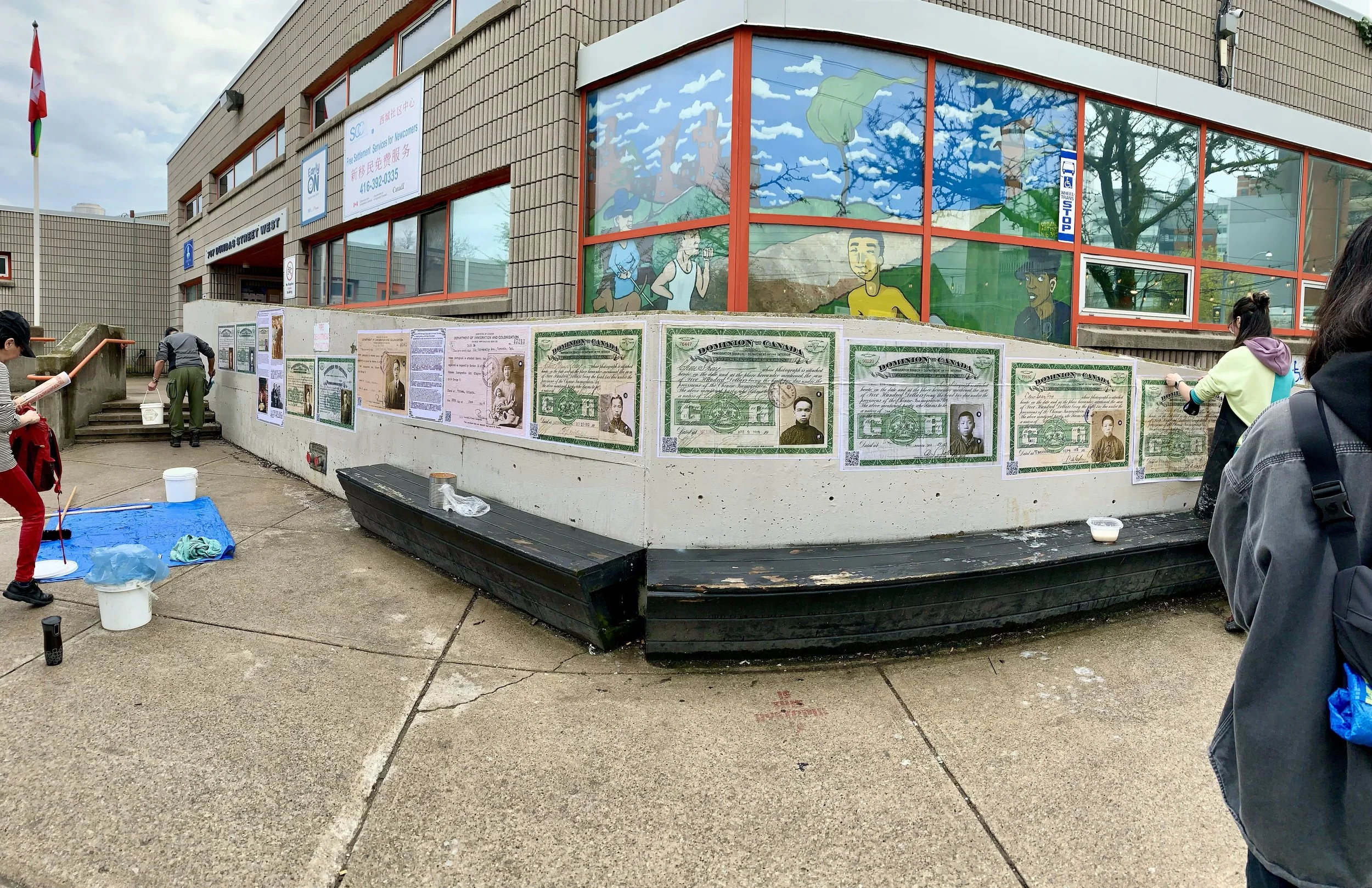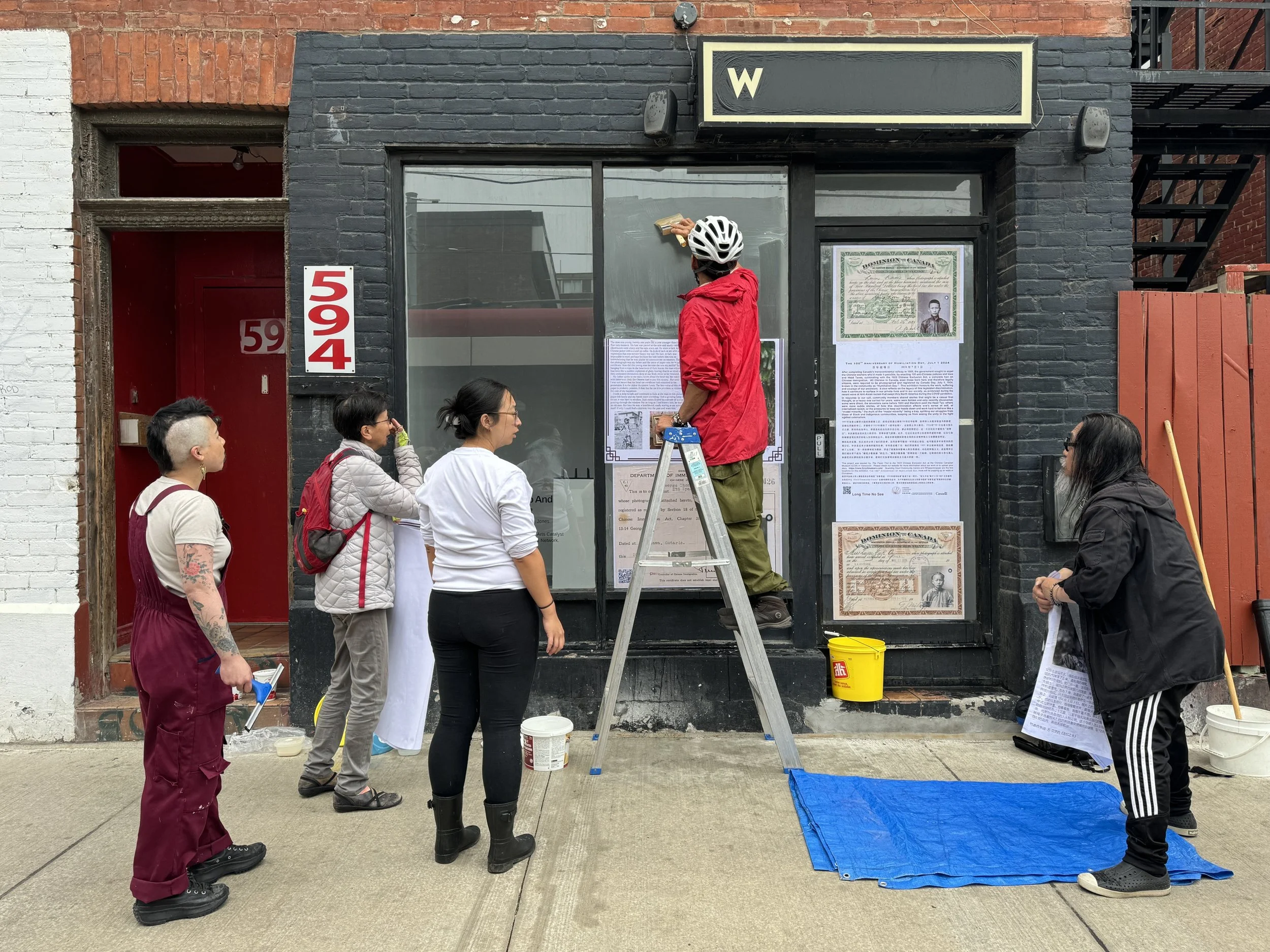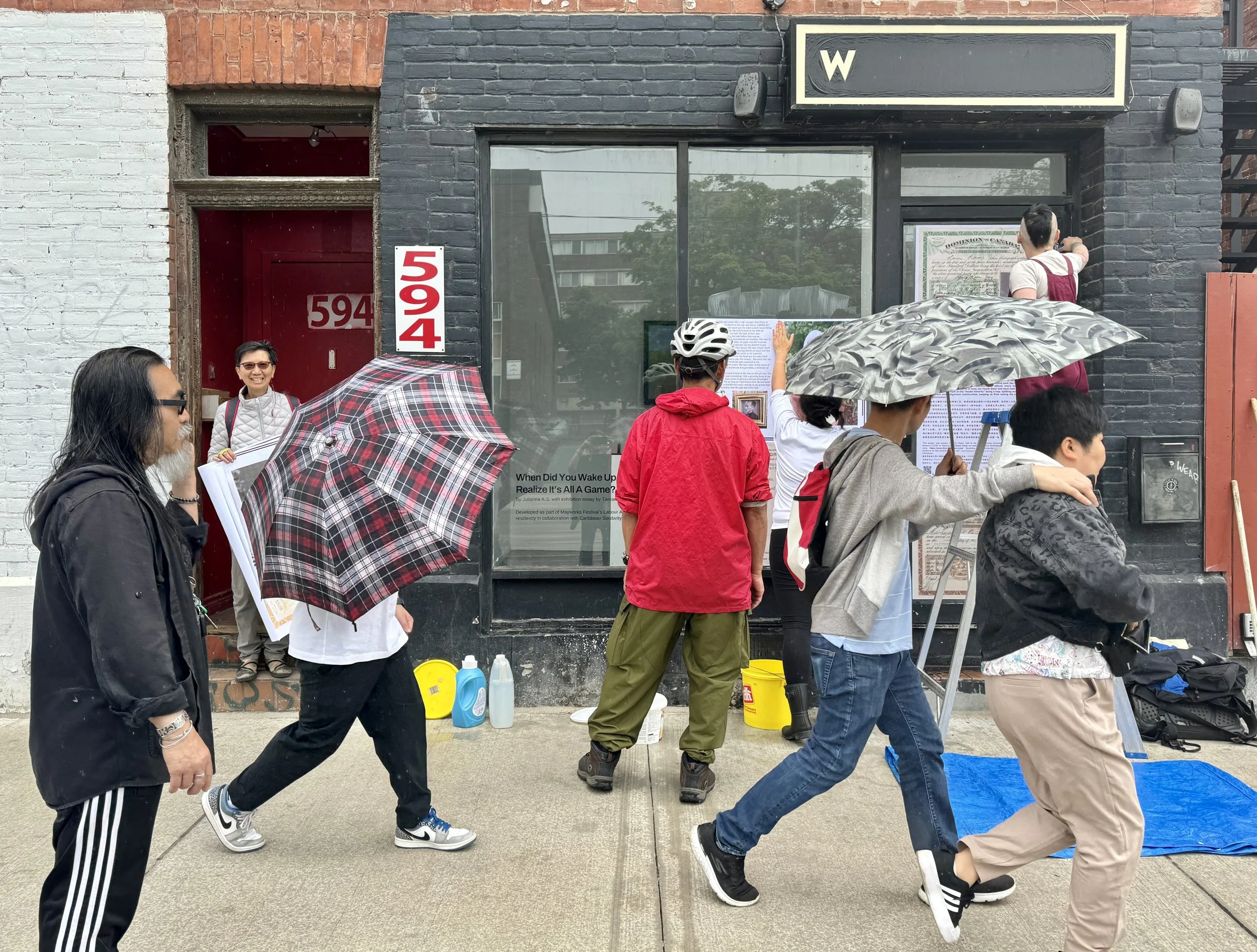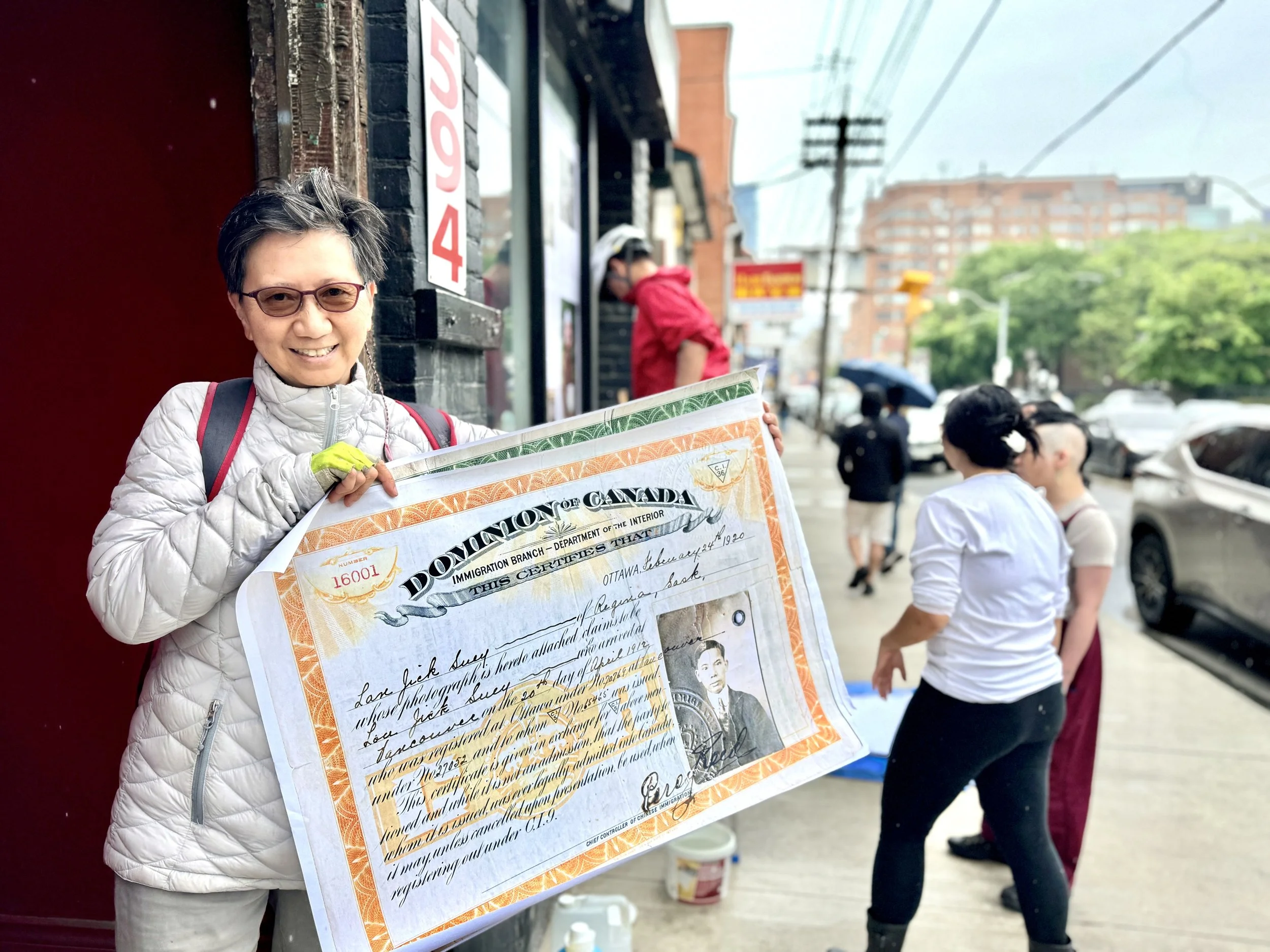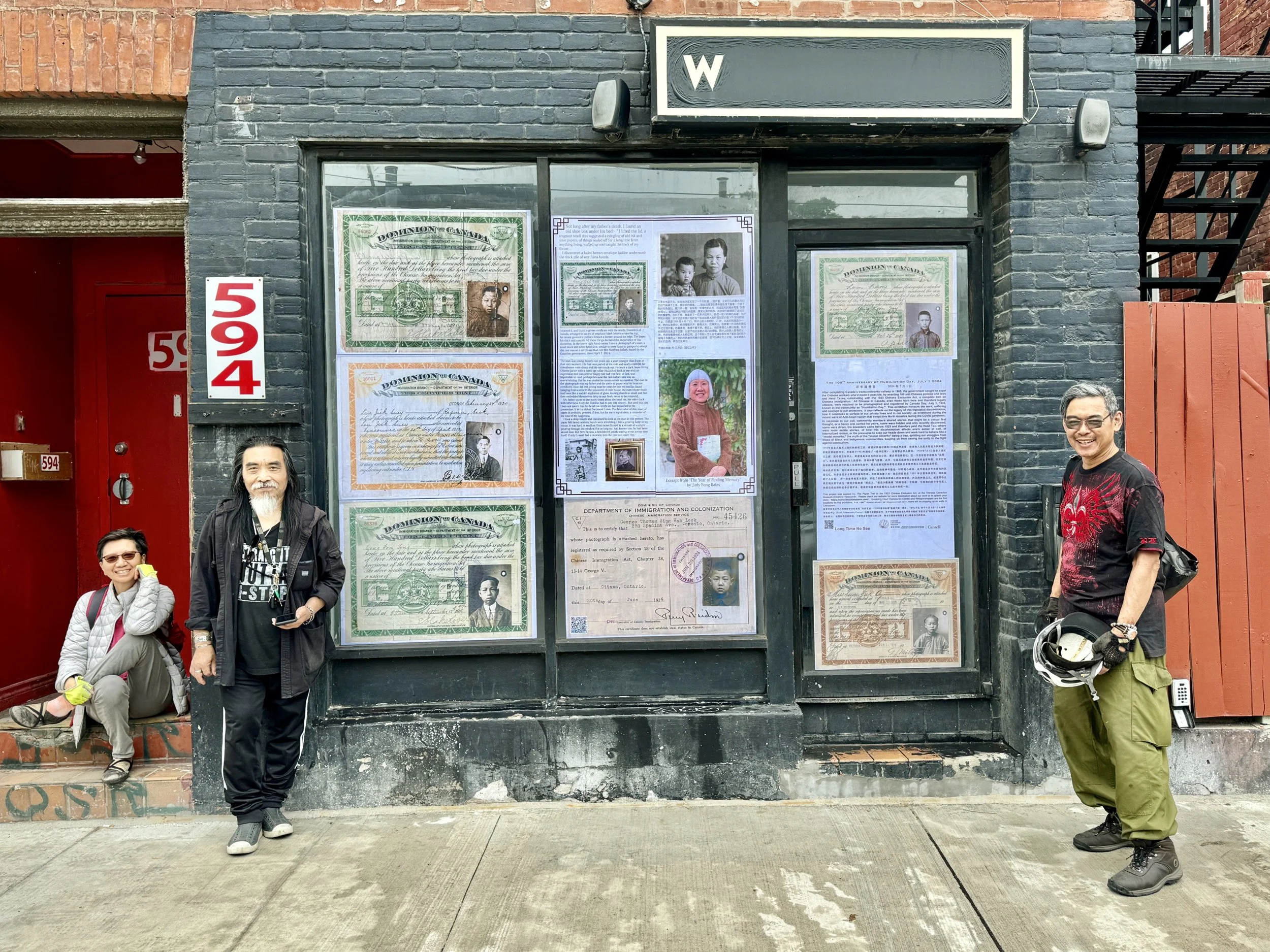The 100th Anniversary of “Humiliation Day” July 1 2024
by Long Time No See
After completing Canada’s transcontinental railway in 1885, the government sought to expel the Chinese workers who’d made it possible, by enacting 100 anti-Chinese policies, laws and Head Taxes, culminating with the 1923 Chinese Exclusion Act, a complete ban on Chinese immigration. All Chinese in Canada, even those born here and therefore legally citizens, were required to be photographed and registered by Canada Day, July 1, 1924, known in the community as “Humiliation Day.” This exhibition honours the work, suffering and courage of our ancestors. It also reflects on the legacy of this legislated discrimination, how it continues to surface in our private lives and in our society, as evidenced during the recent wave of Anti-Asian racism during the COVID pandemic.
In response to our call, community members shared stories that might be a casual first thought, or a heavy one carried for years, some were hidden and only recently discovered; some were direct, the ancestors came before 1923 and therefore paid the Head Tax; others were more subtle stories, of how this discrimination affects one’s sense of self, of internalized racism, or the pressures to keep our heads down and work hard to behave like a “model minority,” the myth of the “model minority” being a trap, splitting our struggles from those of Black and Indigenous communities, keeping us from seeing the unity in the fight against colonialism.
This exhibition will be on exterior walls at multiple locations walls throughout the Chinatown area. At Whippersnapper Gallery, LTNS will feature a family story of acclaimed author Judy Fong Bates.
LTNS brings together artists and educators of different backgrounds and generations of Chinese settlers, arriving on Turtle Island at different times and from different places. We honour our ancestors by sharing and teaching the stories of how Chinatown came to be, the histories that have been erased, and, our responsibilities to act in solidarity with Indigenous peoples.


